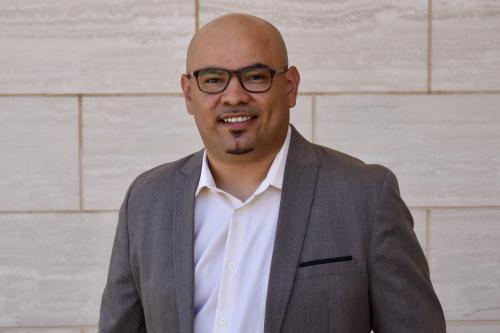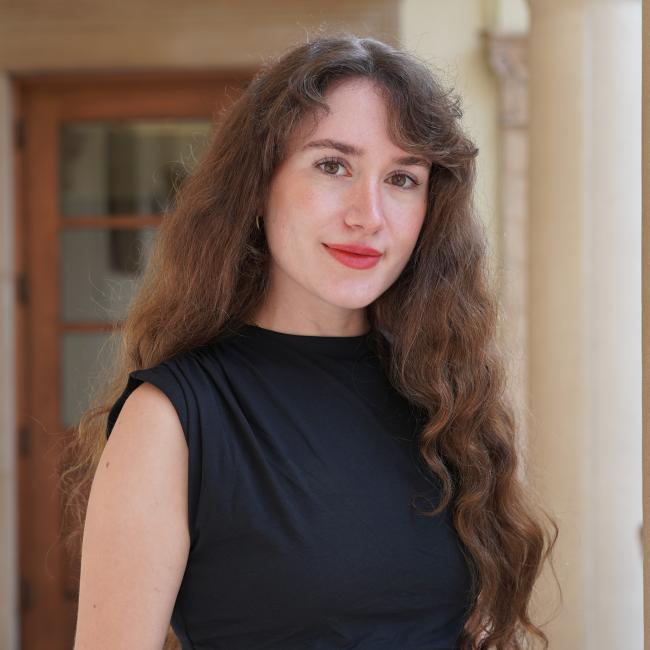
Member Spotlight: Anthony Covarrubias breaks ground in urban farming and inflammaging research
Meet Dr. Anthony Covarrubias, a macrophage biologist whose work focuses on the intersection between aging, inflammation The body’s natural response to an injury or infection that occurs when an immune response is triggered to promote healing. However, chronic inflammation — inflammation that happens even when there’s no injury or invader — is an abnormal immune response. Over time, chronic inflammation can damage healthy cells, tissues and organs and lead to diseases such as cancer, diabetes, Alzheimer’s disease and autoimmune diseases. inflammation The body’s natural response to an injury or infection that occurs when an immune response is triggered to promote healing. However, chronic inflammation — inflammation that happens even when there’s no injury or invader — is an abnormal immune response. Over time, chronic inflammation can damage healthy cells, tissues and organs and lead to diseases such as cancer, diabetes, Alzheimer’s disease and autoimmune diseases. and metabolism. Here, he shares about how his interest in aging research is rooted in his desire to help vulnerable populations, his passion for outreach, and his vegetable and fruit garden that boasts 30 different types of tomatoes.
Covarrubias is an assistant professor of microbiology, immunology and molecular genetics in the UCLA College and a member of the UCLA Health Jonsson Comprehensive Cancer Center’s Tumor Immunology and Immunotherapy A type of treatment that uses the body's own immune system to fight cancer, infections and other diseases. This approach has revolutionized cancer care and is also being applied in experimental treatments for HIV, lupus and other conditions. Immunotherapy A type of treatment that uses the body's own immune system to fight cancer, infections and other diseases. This approach has revolutionized cancer care and is also being applied in experimental treatments for HIV, lupus and other conditions. research program.
Tell us about your research.
Our lab studies the role of inflammation as a driver of cancer, neurodegenerative disorders and cardiovascular diseases. More recently, I’ve been interested in finding the link between inflammation and aging. We know that aging tissues are inflamed, but a lot is still unknown about why that is.
Our team is investigating the role of cellular senescence The natural process by which a cell permanently stops dividing but does not die. As we age, the number of senescent cells in our bodies increases, which can lead to functional decline and may contribute to age-related diseases such as Alzheimer's and cancer. senescence The natural process by which a cell permanently stops dividing but does not die. As we age, the number of senescent cells in our bodies increases, which can lead to functional decline and may contribute to age-related diseases such as Alzheimer's and cancer. in the immune system as a key driver of aging related inflammation, or inflammaging. We’ve honed in on a type of white blood cell called the macrophage that appears to contribute significantly to the accumulation of senescent cells. We’re finding some cool data that points to macrophages also playing a big role in cardiovascular diseases, fatty liver disease and potentially even cancer.
Since aging is the number one risk factor for many diseases, if we can crack aging, we could get more bang for our buck and hopefully find new therapies to treat all these other diseases that are associated with aging. There’s a lot of public interest in the aging space, so it’s important to not overpromise or talk about breakthroughs that don’t exist. Our goal isn’t necessarily to make people live longer, it’s to make people live healthier for longer.
How has being a UCLA Broad Stem Cell Research Center member helped you as a scientist?
I’ve received two Innovation Awards for projects I’m working on with fellow center investigators:
The first project is a collaboration with Dr. Arjun Deb. We’re looking into the role of inflammation as a driver of dysregulated energy metabolism and exploring how that process is linked to cardiovascular disease.
For the second project, I’m working with Dr. William Lowry to better understand cellular senescence and how to selectively target senescent cells as a potential therapy for various disease settings, including aging.
As an assistant professor who just started running my own lab three years ago, this funding from the center has helped me form strong collaborations with senior PIs and explore new research directions that I wouldn’t have been able to pursue on my own.
Have you always wanted to be a scientist?
I’ve always been interested in general biology, but growing up in South Los Angeles, I didn’t know many people in the science or health fields. It wasn’t until I went on a high school field trip to UCLA with a program called CityLab that I became aware of science as a career path. That day, we visited a lab and worked on a research project alongside UCLA students. I was so fascinated by everything I saw that I made it my goal to attend UCLA and become a scientist by the end of the visit.
As an undergrad at UCLA, I became the co-director of CityLab and we continued to host high school students from backgrounds that are historically underrepresented in science and expose them to research being done on campus. I remain super passionate about outreach because I know how that one field trip fundamentally impacted my own life trajectory.
What motivates you to pursue your research?
I’m driven by my endless curiosity and my desire to make a positive impact on my community. As an undergrad, I worked with the UCLA Department of Family Medicine to explore disease prevalence in vulnerable populations, particularly the homeless and undocumented Latino populations in L.A. One of the reasons I study aging now is because I’m still interested in figuring out why health disparities exist in the first place.
Aging impacts all of us, but it impacts some communities more than others — this was especially highlighted during the COVID-19 pandemic. Elderly African American and Latino communities disproportionately experienced the most severe outcomes and higher death rates during the pandemic. A major motivation and goal for me is to translate what we’re learning about the fundamental mechanisms of aging and disease to the clinic in a way that brings meaningful impact to my community.
Where and when are you the happiest?
Since becoming a faculty member, I now get the most joy when mentoring my students and seeing them make breakthroughs, push through challenges and get recognized via awards and publications.
Outside of work, I’m someone with a lot of hobbies. I love gardening. I have a giant garden in my front yard where we grow kale, beans, squash, watermelons, strawberries and about 30 different types of tomatoes. We also raise chickens and get on average two dozen fresh eggs every week that we like to share with family and neighbors. Through our garden, we hope to raise our 1-year-old son to appreciate where food comes from and to form positive associations with fruits and vegetables.
I’m also into fermentation sciences, so I’ve been brewing my own beer and fermenting different vegetables. Growing up in Gardena where there’s a large Japanese American population, I’ve always been really interested in bonsai. I’ve joined our local community group to learn more about the history, tradition and all the effort that goes into caring for these trees — it’s a delicate art rooted in patience.

What’s something most people might not know about you?
I’m really into classic cars. My father worked in an auto body shop as a painter, so I learned from a young age to appreciate the art that goes into painting and maintaining classic cars. When I moved back to L.A. a few years ago, I bought a 1954 Chevy truck — the perfect little farm truck to match all the produce that we’re growing. It’s been so fun to attend antique car swap meets, find rare parts for the truck and meet all these interesting people who come from different walks of life but who are bonded by their passion for cars.


